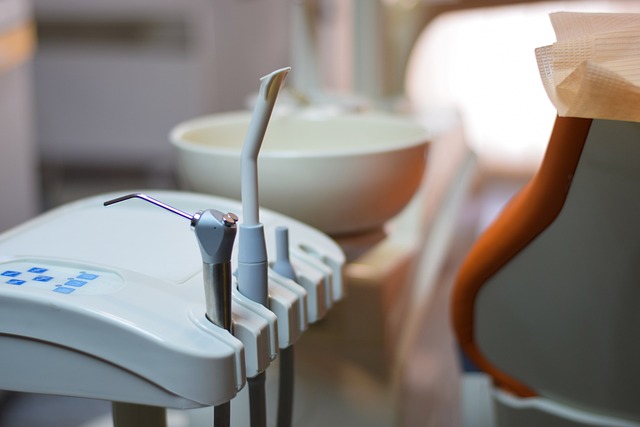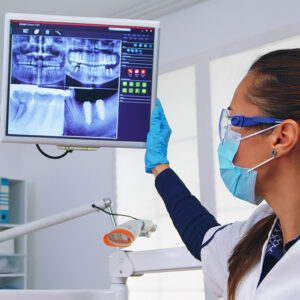Have you ever dreamed of having a perfect smile but wondered, how long do veneers last? This is a question that many individuals, especially those seeking significant dental transformations, often ask. Veneers are a popular choice for achieving a flawless smile, but understanding their longevity is crucial before making an investment.
This comprehensive guide will delve into the lifespan of veneers, shedding light on the factors that influence their durability and how you can maintain them for years to come.
Why is this topic so relevant? Veneers, whether porcelain or composite, represent a significant investment in your appearance and self-confidence. Knowing how long they last can help you make informed decisions and prepare for future maintenance. Moreover, this knowledge can alleviate concerns about the cost and durability of dental procedures performed abroad, particularly in vibrant cities like Cartagena, Medellin, or Bogotá.
In this blog post, we will cover:
- The average lifespan of different types of veneers
- Factors that affect their longevity
- Tips for maintaining your veneers to extend their lifespan
- Signs that it might be time to replace your veneers
Factors Influencing the Lifespan of Veneers
Several factors influence how long your smile design may last, including the quality of materials used, the expertise of the dentist, and the patient’s oral hygiene habits. Understanding these factors can help you make informed decisions about your treatment.
Quality of Materials
The type of material used plays a significant role in their durability. Porcelain veneers, for instance, are known for their strength and natural appearance. They can last between 10 to 15 years with proper care. On the other hand, composite veneers are more affordable but typically have a shorter lifespan of about 5 to 7 years. The choice will depend on your budget and aesthetic preferences.
It’s essential to discuss with your dentist the pros and cons of each material. High-quality materials might have a higher upfront cost, but they often provide better longevity and aesthetic results.
Expertise of the Dentist
The skill and experience of the dentist performing the procedure are crucial. A highly experienced dentist will ensure that the veneers are properly fitted and bonded to your teeth, reducing the risk of issues such as chipping or detachment. Look for a dentist who specializes in cosmetic dentistry and has a proven track record of successful treatments.
At Aleriom, we connect you with top dentists in Colombia who are proficient in advanced procedures. Our dentists use the latest technology, such as CAD/CAM systems, to design and fabricate veneers with precision.
Oral Hygiene and Maintenance
Your oral hygiene habits significantly impact the lifespan of your smile design. Regular brushing and flossing help prevent plaque build-up and gum disease, which can affect the longevity. It’s also important to visit your dentist regularly for check-ups and professional cleanings.
Avoiding habits that can damage your smile design, such as biting on hard objects or using your teeth as tools, is also crucial. Wearing a mouthguard during sports or if you grind your teeth at night can protect your smile design from unnecessary wear and tear.
Diet and Lifestyle Choices
Your diet and lifestyle choices can also influence how long your smile design lasts. Consuming excessive amounts of staining foods and beverages, such as coffee, tea, red wine, and tobacco, can discolor your smile over time. While porcelain veneers are more resistant to stains than composite, it’s still advisable to moderate your intake of these substances.
Additionally, maintaining a balanced diet rich in vitamins and minerals supports overall oral health, which in turn helps preserve the integrity of your smile design.
For more information on veneer treatments and other dental procedures, visit our website and explore our comprehensive guides and resources.
Typical Lifespan of Veneers
On average, your smile design can last between 10 to 15 years, but this can vary based on several factors. Understanding the typical lifespan can help you set realistic expectations and plan for future dental work.
Average Lifespan of Different Types of Veneers
Porcelain veneers are known for their durability and natural appearance. With proper care, they can last between 10 to 15 years. In some cases, they may even last up to 20 years. On the other hand, composite veneers are more affordable but generally have a shorter lifespan, lasting about 5 to 7 years.
According to the American Dental Association, the longevity depends on several factors, including the quality of the materials used and the patient’s oral hygiene habits. High-quality materials and proper maintenance can significantly extend the lifespan.
How to Maintain Your Veneers for Longevity
Proper maintenance is key to extending the life of your veneers. By following a consistent care routine and avoiding common mistakes, you can ensure your smile remains in excellent condition for years to come. This section provides practical tips on how to care for your veneers, including daily routines and professional care recommendations.
Daily Oral Hygiene
Maintaining a daily oral hygiene routine is essential for the longevity of your veneers. Here are some actionable steps to follow:
- Brush Twice Daily: Use a soft-bristled toothbrush and non-abrasive toothpaste to gently clean your teeth. Abrasive toothpaste can scratch the surface, leading to discoloration and damage.
- Floss Daily: Flossing helps remove plaque and food particles from between your teeth. Be gentle to avoid damaging the edges of your veneers.
- Rinse with Mouthwash: Use an alcohol-free mouthwash to reduce bacteria and maintain fresh breath. Alcohol-based mouthwashes can weaken the bond of the veneers.
Professional Dental Care
Regular visits to your dentist are crucial for maintaining the health of your veneers. Professional care includes:
- Biannual Check-ups: Schedule dental check-ups every six months to monitor the condition of your veneers and address any issues early on.
- Professional Cleanings: Professional cleanings help remove plaque and tartar build-up that regular brushing and flossing might miss. This prevents gum disease and other oral health issues that can affect your veneers.
- Repairs and Adjustments: If your veneers become chipped or damaged, your dentist can perform repairs or adjustments to restore their appearance and function.
Diet and Lifestyle Choices
Your diet and lifestyle choices can significantly impact the longevity of your veneers. Consider the following tips:
- Avoid Staining Foods and Beverages: Limit your intake of coffee, tea, red wine, and tobacco, as these can stain your veneers over time. While porcelain veneers are more resistant to stains, it’s still advisable to moderate your consumption of these substances.
- Maintain a Balanced Diet: A diet rich in vitamins and minerals supports overall oral health, which in turn helps preserve the integrity of your veneers. Include plenty of fruits, vegetables, and lean proteins in your diet.
- Avoid Hard Foods: Biting on hard objects like ice, nuts, or pens can chip or crack your veneers. Be mindful of what you eat and avoid using your teeth as tools.
Protective Measures
Taking protective measures can prevent damage to your veneers and extend their lifespan. Here are some recommendations:
- Wear a Mouthguard: If you participate in contact sports or grind your teeth at night, wearing a mouthguard can protect your veneers from unnecessary wear and tear.
- Avoid Using Teeth as Tools: Using your teeth to open packages or bottles can damage your veneers. Always use the appropriate tools for such tasks.
Common Mistakes to Avoid
Avoiding common mistakes can help maintain the appearance and function of your veneers. Here are some pitfalls to watch out for:
- Using Abrasive Toothpaste: Abrasive toothpaste can scratch the surface of your veneers, leading to discoloration and damage. Always use a non-abrasive toothpaste recommended by your dentist.
- Neglecting Oral Hygiene: Poor oral hygiene can lead to plaque build-up, gum disease, and other issues that can compromise the longevity of your veneers. Stick to a consistent oral care routine.
- Ignoring Dental Visits: Skipping regular dental check-ups and cleanings can result in undetected issues that may worsen over time. Regular visits to your dentist are essential for maintaining the health of your veneers.
By following these maintenance tips and avoiding common mistakes, you can ensure that your veneers remain in excellent condition for years to come. For more information on veneer treatments and other dental procedures, visit our website and explore our comprehensive guides and resources.
Signs It’s Time to Replace Your Veneers
Knowing when to replace your veneers is crucial for maintaining a healthy and attractive smile. Over time, veneers can show signs of wear and tear, and recognizing these signs early can help you take action before more serious issues arise. Here are some common indicators that it might be time to consider replacing your veneers.
Discoloration and Staining
One of the most noticeable signs that your veneers need replacing is discoloration or staining. While porcelain veneers are highly resistant to stains, they are not entirely immune. Over time, exposure to staining substances like coffee, tea, red wine, and tobacco can cause your veneers to lose their original sparkle. If you notice that your veneers are becoming discolored and professional cleanings no longer restore their brightness, it might be time to replace them.
Composite veneers, on the other hand, are more prone to staining and discoloration. If your composite veneers have become significantly discolored, replacing them can restore the natural appearance of your smile.
Chipping and Cracking
Chipping and cracking are common issues that can affect the integrity and appearance of your veneers. While they are designed to be durable, they can still chip or crack due to various factors such as biting on hard objects, accidental trauma, or natural wear and tear. If you notice any chips or cracks, it’s essential to consult with your dentist. In some cases, minor chips can be repaired, but significant damage often requires replacement to ensure the longevity and aesthetics of your smile.
Discomfort or Sensitivity
Experiencing discomfort or sensitivity in your teeth can be a sign that your smile needs attention. This discomfort can result from several issues, such as improper fitting, damage to the underlying tooth structure, or gum recession exposing the edges of the veneers. If you feel any unusual sensitivity or discomfort, it’s crucial to visit your dentist for an evaluation. Addressing these issues promptly can prevent further complications and ensure your veneers continue to function correctly.
Gum Recession
Gum recession is another indicator that it might be time to replace your smile design. As gums recede, the edges of the veneers can become exposed, leading to an unsightly appearance and potential discomfort. Additionally, exposed edges can create areas where plaque and bacteria can accumulate, increasing the risk of decay and gum disease. If you notice significant gum recession around your veneers, consult with your dentist to discuss replacement options and potential treatments to address the underlying gum issues.
Misalignment or Poor Fit
Over time, the fit may change due to natural tooth movement or changes in your bite. Misaligned or poorly fitting veneers can cause discomfort, difficulty in cleaning, and an uneven appearance. If you notice that your veneers no longer fit properly or have shifted out of alignment, it’s essential to seek professional advice. Your dentist can assess the situation and recommend replacement veneers to restore proper fit and function.
Wear and Tear
Veneers are designed to withstand daily wear and tear, but they are not indestructible. Over time, the constant pressure from chewing and other oral activities can cause them to wear down. If you observe that your veneers are thinning or showing signs of significant wear, it may be time to consider replacing them. Replacing worn veneers can help maintain the structural integrity of your teeth and ensure a lasting, beautiful smile.
By addressing these issues promptly and consulting with your dentist, you can ensure that your smile remains beautiful and functional for years to come.
Ensuring the Longevity of Your Veneers
Veneers can provide a long-lasting and beautiful smile when given the right care and attention. By understanding the factors that influence their lifespan and following proper maintenance routines, you can enjoy the benefits of smile design for many years. Let’s recap the key points discussed throughout this blog post.
Firstly, the quality of materials used in veneer treatments plays a significant role. Porcelain veneers are known for their durability and natural appearance, often lasting between 10 to 15 years, while composite veneers typically last around 5 to 7 years. Choosing high-quality materials, despite their higher initial cost, can lead to better longevity and aesthetic results.
Secondly, the expertise of the dentist is crucial. A skilled and experienced dentist can ensure that the veneers are properly fitted and bonded, reducing the risk of issues such as chipping or detachment. At Aleriom, we connect you with top dentists in Colombia who use advanced technology to provide precision in veneer treatments.
Maintaining good oral hygiene is another key factor. Regular brushing, flossing, and professional cleanings help prevent plaque build-up and gum disease, which can affect the lifespan of your veneers. Additionally, avoiding habits that can cause damage, such as biting on hard objects or using your teeth as tools, is essential.
Your diet and lifestyle choices also impact the longevity. Limiting the intake of staining foods and beverages like coffee, tea, and red wine can help maintain their original appearance. A balanced diet rich in vitamins and minerals supports overall oral health, further preserving the integrity of your veneers.
Finally, recognizing the signs that it’s time to replace your smile design is crucial. Discoloration, chipping, discomfort, gum recession, misalignment, and general wear and tear are all indicators that your smile may need attention. Addressing these issues promptly with your dentist ensures that your smile remains beautiful and functional.
For more detailed information on dental procedures, visit our website and explore our comprehensive guides and resources. If you have any questions or need personalized advice, don’t hesitate to schedule a consultation with our expert dentists. Your journey to a lasting and beautiful smile begins with the right care and decisions.
Ready to transform your smile? Contact us today to schedule a consultation with us and learn more about our high-quality dental treatments in Colombia.
The TL;DR
- Veneers last between 5 to 15 years, depending on materials (porcelain or composite) and care.
- Longevity is influenced by the quality of materials, expertise of the dentist, oral hygiene, and lifestyle choices.
- Maintain them with regular brushing, flossing, and avoiding hard objects and staining foods.
- Recognize signs for replacement: discoloration, chipping, discomfort, gum recession, misalignment, and wear and tear.
- Proper maintenance and timely replacement ensure a lasting, beautiful smile.








